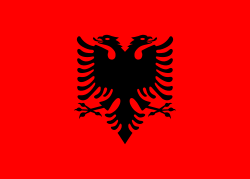Corruption and human development in Albania
After 1990, Albania has passed from a centralized economy to a liberal one. Liberalization has brought both mainly negative effects to the politics, economy and other social aspect. There are two main components that measure a country's progress toward success. Firstly, the economic growth is the most used and discussed indicator of the progress.
During the last two decades, the economists have been more interested in the economic development, consisting of the aggregate of health, education level and income rather than economic growth. Secondly, the corruption level is found to be a significant component of progress. Different researches have founded out a negative relationship between corruption level and countries’ progress.
Empirical research of Hysa (2011) reveals that there is a statistically significant negative relationship between corruption indexes and human development. [3] Empirical evidence of the study, comparing Albania with the EU member countries, suggests that more corrupted countries tend to have lower levels of human development. In the Albanian case, the relationship between corruption and human development is found to be much stronger than in the EU countries. [3]
International rankings
Transparency International's 2024 Corruption Perceptions Index scored Albania at 42 on a scale from 0 ("highly corrupt") to 100 ("very clean").
When ranked by score, Albania ranked 80th among the 180 countries in the Index, where the country ranked first is perceived to have the most honest public sector. [4] For comparison with regional scores, the best score among Eastern European and Central Asian countries [Note 1] was 53, the average score was 35 and the worst score was 17. [5] For comparison with worldwide scores, the best score was 90 (ranked 1), the average score was 43, and the worst score was 8 (ranked 180). [1]
This page is based on this
Wikipedia article Text is available under the
CC BY-SA 4.0 license; additional terms may apply.
Images, videos and audio are available under their respective licenses.

